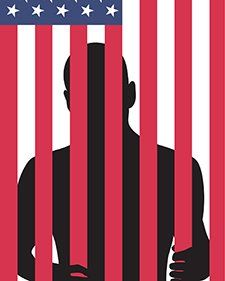SERP News
browse more news Engaging Students with Civics Units on Social Justice
Free instructional materials integrate social justice content and standards-based practices
We at the SERP Institute add our voices to the many millions demanding an end to systemic racism. In line with our mission, we are committed to redoubling our efforts to provide teachers with educational resources that encourage students to think deeply about justice, equality, and democracy, and to engage in informed discussion and debate about the issues that will be theirs to shape in the decades to come. The linked units below, designed for middle school but used by high school teachers as well, may be useful to those who seek to provide meaningful, student-centered instructional opportunities that are relevant to the discussions of racial bias happening today. The units were developed in 2015 and therefore do not mention specific current events. Teachers may wish to assign news articles to explore the connection between unit content and current developments.
When is a crime not a crime?
focuses on variation in laws across states and the tensions between federal and state laws. It includes the story of Trayvon Martin, as well as the case of Loving v. Virginia, which challenged the Virginia law prohibiting interracial marriage. Students write an essay in response to President Obama’s speech after the Trayvon Martin verdict.
Download:
Where is the justice in our justice system?
explores the elements of our justice system that are intended to provide safeguards for those accused and the racial and income disparities in who is accused, taken into custody, and incarcerated. It also compares incarceration rates in the U.S. with other countries.
Download:
How do we right the wrongs of the past?
explores the history of voting rights in the U.S. and compares representation of women and minorities in Congress over time. It treats Jim Crow segregation, redlining, and racial disparities in wealth over a 50-year period. Students debate the case for reparations.
Download:
Each week-long unit is comprised of 40-50 minute lessons each day and highlights 5–10 academic words. There are also supplementary activities for multiple content areas. Many of the activities are appropriate for at-home use, to build background knowledge and vocabulary in preparation for discussion and debate done synchronously. By bringing the controversies closer to students' lives and providing them with opportunities to identify the claims, reasons, and evidence associated with positions, students are equipped with both the background and the tools to engage in oral and written argumentation.
We will share additional SERP resources that address social justice in the near future. We welcome your feedback, including specific ways that we might improve our content.
Strategic Education Research Partnership
SERP Institute
1100 Connecticut Ave NW
Suite 1310
Washington, DC 20036
SERP Studio
2744 East 11th Street
Oakland, CA 94601
(202) 223-8555
Registered 501(c)(3). EIN: 30-0231116
©
Copyright
Strategic Education Research Partnership


